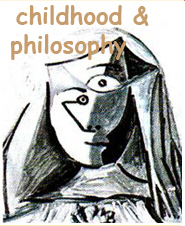contra deficient child perception: a husserlian analysis
Keywords:
Husserl, perception, children, phenomenology, Abschattung, memoryAbstract
In this paper we use Husserl’s theory of perception to explore how child and adult perception works through the same mechanisms. First, we explore Husserl’s description of sensory perception, showing that the child, like the adult, will be able to enrich the total perception of the object through access to successive appearances of an object. Next, we explore how the child’s ability to perceive objects can be enriched in complex ways, showing that an adult or a child will both be able to access a greater ‘enduring entity’ of the object. Finally, we consider the child’s ability to remember their perceptions through memory, showing how the child and the adult use the ego’s intentionality, rather than active remembering, as a component of the memory of a perception.Downloads
Download data is not yet available.
Downloads
Published
2012-01-03
Issue
Section
articles




